Public Health News
Diane Lyden Murphy Concluding Tenure as Dean
A longtime member of the Orange community, Diane Lyden Murphy ’67, G’76, G’78, G’83, dean of the David B. Falk College of Sport and Human Dynamics, has had an impactful, accomplished career at Syracuse University—as a student, faculty member and academic leader. Today, Murphy announced her plans to conclude her tenure as dean at the end of the academic year in 2023. A search for her successor will begin in January 2023.
“Diane has been a force of nature at Syracuse University since she arrived on campus nearly 60 years ago,” says Chancellor Kent Syverud. “She’s an innovator who inspires and engages others in transformational initiatives. Through her work in sexual and relationship violence, gender equality, diversity, inclusion and accessibility, Diane has both enhanced the student experience and helped our Orange community become a more welcoming place for students, staff and faculty.”
“In the years I’ve been at Syracuse University, I’ve been incredibly impressed with Diane’s work,” says Vice Chancellor, Provost and Chief Academic Officer Gretchen Ritter. “As a fierce advocate for her college and some of the University’s most important initiatives, she has an extraordinary ability to communicate with and engage others in what is truly important to the University experience. She is highly respected and for good reason because she is a person of high integrity.”
Murphy says serving her alma mater all these years, especially in her most recent role as Falk College dean, has been the honor of a lifetime.
“It has been an extraordinary privilege to be able to integrate my life’s work and focus as an activist scholar, social worker and social policy faculty with a career that articulates this effort in many ways over the years,” Murphy says. “I have built a cherished network of friends and colleagues that focus on matters of social justice and progressive peace work for both the community and the university, and together we have moved these communities forward.”
Appointed as dean of the College of Human Services and Health Professions in 2005, Murphy expanded that college with the Department of Sport Management to create the David B. Falk College of Sport and Human Dynamics in 2011. Murphy led a successful effort to integrate these disparate but complimentary curricula into one college, which moved into the White Hall-McNaughton Hall complex in 2015, physically bringing their departments together for the first time.
In addition to forging and shaping the Falk College, Murphy established a college Research Center and launched new undergraduate majors and minors, and several graduate programs. Her commitment to global education has resulted in study abroad opportunities throughout the Falk College. Her dedication to accessibility and global outreach led to groundbreaking new online programs, including online graduate programs in social work and marriage and family therapy. She helped create the food studies and sport management majors; launched the nation’s first bachelor’s degree in sport analytics; and integrated the Department of Exercise Science into the college. Murphy also led the creation of Falk’s Department of Public Health, and spearheaded collaborations with other colleges, including the School of Education, the College of Law and the Martin J. Whitman School of Management.
Mission-driven and passionate about issues of equality, diversity, inclusion and accessibility, Murphy believes that progress results from collective wisdom and collective action.
“We’ve learned a lot from the Haudenosaunee women, the Native women who have always led and been a very important voice, but their men lead with them,” says Murphy. “It’s about empowering people, getting people to the table, because collective voices make the best decisions. You need to have people who have different life experiences because they will think about things you wouldn’t have thought about.”
Murphy applied this passion to several critical leadership roles on campus. In August of 2021, she was one of a three-person interim leadership team appointed by Chancellor Syverud to advance the University’s diversity, equity, inclusion and accessibility (DEIA) priorities and strategic planning efforts. Murphy also serves as co-chair of the Chancellor’s Task Force on Sexual and Relationship Violence, a role she’s held since 2017. And, during former Chancellor Kenneth A. Shaw’s tenure, she served as a consultant to him on women’s issues while director of women’s studies. In that role she co-founded the University Senate Committee on Women’s Issues while also co-writing the University’s first Sexual Harassment Policy, Domestic Partnership Policies, Adoption Policies and Gender Equity Studies with the goal of elevating Syracuse’s commitment to a family friendly environment.
Murphy is a four-time Orange alumna. She earned a bachelor’s degree in sociology, a master of social work degree, a master’s degree in social science and a Ph.D. in interdisciplinary social science, all from Syracuse University. She became a member of the University’s social work faculty in 1978 and also served as director of the women’s studies program in the College of Arts and Sciences from 1989-2005, where it became a department with tenured faculty scholars and built the first B.A. and certificate in women’s studies at Syracuse University. She has also served as an elected faculty member of the Syracuse University Senate since 1980.
Committed to Student Success
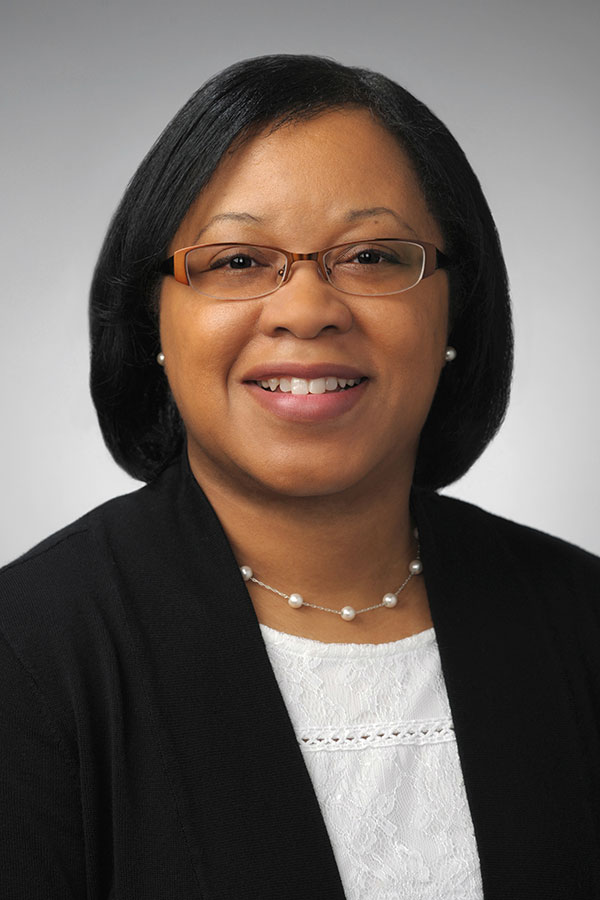
As a non-traditional, first-generation undergraduate student at Syracuse University, Chandice Haste-Jackson excelled academically but always felt there was something missing in her pursuit of knowledge.
That missing piece? Connecting with others.
“Ultimately, I discovered that in connecting with others, I could expand my knowledge and understanding beyond anything I learned from textbooks,” Haste-Jackson says. “That set me on a career journey oriented toward human connection, holistic development, and service, whether that be in fields of teaching, counseling, leadership, or administration.”
This past summer, Haste-Jackson’s lifelong journey of connecting with others continued with her appointment as Associate Dean of the Office of Student Services in Falk College. An associate teaching professor in Falk’s Department of Human Development and Family Science (HDFS), Haste-Jackson previously held several prominent HDFS positions and was chair of the Dean’s Committee on Diversity and Inclusion. In 2021-22, Haste-Jackson served as Syracuse University’s interim director of the First-Year Seminar course.
Before joining Syracuse University, Haste-Jackson was drawn to work that supported vulnerable populations. It was her job, she says, to help those populations expand their understanding, move from deficit toward sufficiency, and identify what wholeness, health, and stability meant to them and/or their families.
“Was this difficult work at times? Yes!” Haste-Jackson says. “But what I gained from these experiences is that our humanity connects us all, even those who are not like ourselves. We all want similar things–health, happiness, longevity, stability–and that makes us more interconnected than we think we are.”
To introduce Haste-Jackson to Falk students, we asked her to discuss her previous experience with students, the services offered by the Office of Student services, and questions that students might ask. Here’s that conversation:
What attracted you to your new job and why is it important that you’re helping Falk College students succeed?
After 20 years of working in nonprofit organizations and schools, rising through the ranks of direct service to executive leadership and administration, I spent a good deal of time teaching and training frontline employees and college student interns. In working with college student interns, I developed a desire to teach, mentor, and prepare the next generation of human service workers, a field that is very broad but one that involves human connection, holistic development, and service–tenets I live my life by!
Given the climate in which we live in today, college students are dealing with issues that may impact their ability to successfully engage in academic pursuits. The COVID-19 pandemic, mass racial violence, wars, and significant personal losses have impacted academic performance and emotional well-being. Helping students to navigate these challenges during their time with us in Falk College is what I endeavor to do, and I am committed to leading and supporting the professional staff in our office who have made that same commitment to student success.
I’m a first-year or transfer student who isn’t familiar with the Office of Student Services. What are the services you provide?
In your first year at Syracuse University, our office will provide academic counseling and advising around other areas in your life that you identify as being important to your growth as a student in Falk College. Additionally, our office supports career exploration and professional skill development, and offers opportunities for learning through career immersion experiences.
Every first-year and transfer student has an assigned academic counselor, and the Office of Student Services will be one of the first places that you connect with to learn more about your major and all the resources available at Syracuse University.
I’m a student struggling with my classes and I’m not sure if I’ve chosen the right major. How can you help?
This is common for students who are adjusting to the intensity of college-level work. We can help you identify the source/cause of the struggle with your classes and then locate campus resources that you might consider accessing for help.
Sometimes, making a change in how you study, how much time you give to studying, or even where you study is all that may be needed to alleviate the struggle. Sometimes, motivation is at the root of the struggle and subsequently causes you to consider if the major is right or not. We’ll help you to explore and develop a pathway to successful academic performance.
I’m a student having a hard time being away from home and I’ve got personal issues that are getting in the way of my sleep, classwork, and social life. Do I go to you or somewhere else?
You most certainly can meet with your academic counselor to discuss these personal issues. Our academic counselors will listen and help you find the resources that are right for you and meet your needs. You do not have to be alone in trying to address emotional, social, or academic well-being.
We also recommend that students contact the Barnes Center at The Arch and/or Hendricks Chapel for support with any personal issues that arise. We are well-connected to these two resources and support student engagement with their services.
Why is it important for students to see you if they have issues rather than trying to work them out on their own? Isn’t that what college is for, learning how to handle stress?
Absolutely! Learning how to handle stress is an expectation of a college student, yet many students are not prepared for the inherent stress that comes with transitioning to college. During the first year of study or even subsequent years, there are a series of social, emotional, and academic adjustments that must occur for you to be successful as a college student. There will be some new stressors, and some of your past ways of handling stress may not be as effective for you now.
Being proactive in seeking help before something becomes an issue is also something that college students are expected to learn early in their college career. We can help you to learn these skills and support you along the way as you employ them.
Help is Here
The Falk College Office of Student Services is in Suite 330 Barclay Hall. You can visit at any time or schedule an appointment by calling 315.443.3144 or emailing falkss@syr.edu. Visit the Office of Student Services webpage for more information and a complete list of services, important announcements, and staff directory.
Dean Murphy Welcomes Falk Students
Dear Falk Students,
Finally, our beautiful campus is packed with energy after the quiet summer months. It’s great to see our returning Falk students—we’re so glad to have you back! Please join me in giving a big Orange WELCOME to the Class of 2026, and to our new transfer and graduate students! Our Falk family just got a whole lot bigger.
As we share in the excitement of a new semester, I want to remind you of some important information that will help you navigate life on campus.
Official Syracuse University Communications
Syracuse University email is the primary communication method at the University. Your professors and University offices will contact you with important information using your Syracuse University email address (ending in “@syr.edu”), not your personal email address. It’s important to read your University email at least once every day so you’re aware of the latest information that’s essential to you.
Public Health Information
Public health remains a critical priority for life on campus. Please review the Fall 2022 Public Health Guidelines. We fully expect all Falk College students to follow University public health guidelines. For public health information and updates, please visit the Stay Safe website, the official source of public health information for Syracuse University. Thank you for doing your part to keep our community safe and healthy.
Student Support Services
Falk College Student Services is an important resource in your support system at Syracuse University. Student Services counselors are here to provide you with academic advising and help you meet your requirements and goals. In addition, they are your resource for private consultation related to student social and emotional concerns. If you have any concerns throughout your academic career, please contact Student Services or visit Suite 330 Barclay Hall in the Falk Complex.
I encourage you to connect with the staff at Falk Career Services, who can help you prepare for life after college through career exploration, internship and job searching, professional networking, and more. They are also located in Suite 330 Barclay Hall, or you can search for opportunities through Handshake, the University’s job search and professional events portal.
In addition, you can connect to spiritual life on campus at Hendricks Chapel, as well as health and counseling services in the Barnes Center at the Arch.
Student Spaces in Falk College
The Student Lounge, located in Falk 216, is available to you anytime the Falk Complex is open. The lounge has a microwave, refrigerator, and vending machines for student use. Across the hall is the Falk Café on 2, open 8:00 a.m. to 3:00 p.m. Monday through Thursday and 8:00 a.m. to 2:00 p.m. Friday starting September 6. Visit the Food Services website for up-to-date operating hours for cafés and dining centers across campus. Just down the hall is Falk 229, the quiet student lounge.
There are several computer labs in the Falk Complex. Falk 113 is a PC lab, and Falk 229 is a quiet study area that has both PCs and Macs available for your use. Both spaces are available to students at any time. Falk 400 and 407 are PC labs that are also used as teaching classrooms. When class is not in session, they are open for student use. You may check their schedule of availability using the 25Live website. You may also use the quick-print stations in Falk 216 and 229 for printing and email. These stations log out automatically after 15 minutes of use.
Ways to Get Involved
The Student Involvement Fair will be held Thursday, September 8, on the Quad from 4:00 to 7:00 p.m. There are more than 300 student organizations at Syracuse University. Be sure to explore organizations that might be outside your usual interests, too. Remember, this is a great way to meet new people and discover something new about yourself!
There are many exciting events planned for Fall 2022, including two signature Syracuse University events: Family Weekend October 14-16 and Orange Central, Syracuse University’s annual homecoming and reunion weekend, September 29-October 2. You can discover activities and events on campus by visiting the Syracuse University Calendar.
There are so many ways to connect, express, and grow at Syracuse University, and these are just a few suggestions to get you started. I encourage you to visit the Syracuse University For Students page for more resources and opportunities to make the most of your Syracuse experience.
I wish you the best as you begin (or continue) your Orange story. Best of luck to each of you. We’re excited to see all that you will accomplish this year.
Go Orange!
Diane Lyden Murphy, M.A., M.S.W., Ph.D.
Dean
Falk College
Welcome Class of 2026
Welcome to Syracuse, new Falk College students! The newest Falk students in the Class of 2026 are a talented group from 30 states and 18 global countries. We welcome 386 first-year and 14 transfer students who join new graduate students, 141 in residential programs and 244 online. We’re glad you’re part of the Falk family. Altogether, the Falk College student body is 2,140 strong!
We look forward to meeting with you, your families, and friends at Syracuse Welcome August 25-28, 2022. It will be an exciting time of meeting new classmates and professors, and discovering all that our campus and region have to offer.
Join us for important Falk College welcome events. You can also check out the main Syracuse Welcome website for information on all events surrounding Syracuse Welcome and getting moved in!
Falk College Syracuse Welcome Events:
Falk College Welcomes New Faculty and Staff
Syracuse University’s Falk College is pleased to welcome 14 new staff members who have joined Falk College in the past academic year: Peter Ashworth, Social Work Internship Placement Coordinator; Rebecca Berard, Marriage and Family Therapy Internship Placement Coordinator; Jennifer Coughlin, Social Work Program Manager; Kim Fudge, Admissions Operations Coordinator; RoQueHarmon, Exercise Science Internship Placement Coordinator; Chandice Haste-Jackson, Associate Dean of Student Services; Kara Hughes, Social Work Administrative Assistant; Timothy Lamey, Exercise Science Internship Placement Coordinator; Matt Michael, Communications Manager; Kim Mura, Human Development and Family Science Office Coordinator; Matthew Murphy, Nutrition and Food Studies Procurement Specialist; Beth Perez, Sport Management Internship Placement Coordinator; Ian Richardson, Assistant Director of Undergraduate Admissions, and; Tyler Sliker, Marriage and Family Therapy Clinic Director.
In addition, Falk College is pleased to announce 12 new faculty appointments:
- Exercise Science – Kylie Harmon, Kristen Konkol;
- Human Development and Family Science – Ashleigh Jones;
- Marriage and Family Therapy – Tristan Martin, Tracey Reichert Schimpff;
- Nutrition and Food Studies – Naomi Shanguhyia;
- School of Social Work – Nadaya Brantley, Ting Guan, Joseph Smith, Aviva Vincent;
- Sport Management – Lindsey Darvin, Jason Maddox, Adrian Simion
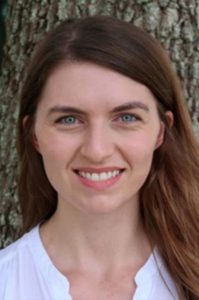
Kylie Harmon
Assistant Professor, Exercise Science
Kylie Harmon joins the Department of Exercise Science as an assistant professor. Her position is part of the Aging, Behavioral Health, and Neuroscience research cluster.
Prior to joining Syracuse University, Harmon was a graduate research assistant at the University of Central Florida (UCF) within the School of Kinesiology and Physical Therapy. There, she taught undergraduate kinesiology classes in exercise science, assessment techniques, and health and wellness. While at UCF, she also served as the research coordinator of the Neuromuscular Plasticity Laboratory within the Institute of Exercise Physiology and Rehabilitation Science. During her M.S. studies, she was the Human Performance Laboratory director within the Department of Kinesiology at California State University, Fullerton.
Harmon’s research focuses on understanding the neuromuscular adaptations that occur in response to aging, immobilization/disuse, fatigue, and strength training, with an emphasis on both changes in motor unit behavior and alterations in the corticospinal pathway. She is particularly interested in how to best preserve muscular strength during periods when resistance training is not feasible, such as during illness, injury, or immobilization.
During her doctoral studies, Harmon was awarded a Richard Tucker Gerontology Applied Research Grant from the University of Central Florida Learning Institute for Elders (LIFE) Group to support her research in older adults. To support her dissertation project, Harmon was awarded the University of Central Florida Graduate Dean’s Completion Fellowship.
Harmon was named recipient of the University of Central Florida Division of Kinesiology Doctoral Scholar Award and Graduate Writing Award supported by the American Kinesiology Association. She is an active member of the National Strength and Conditioning Association (NSCA) and was awarded both the NSCA Foundation’s Women’s Scholarship and Challenge Scholarship.
Harmon earned a Ph.D. in education, exercise physiology track, from the University of Central Florida in 2022, preceded by a M.S. in kinesiology from California State University, Fullerton, in 2016, and a B.A. in Russian studies from Binghamton University in 2013. She is a Certified Strength and Conditioning Specialist through the National Strength and Conditioning Association.
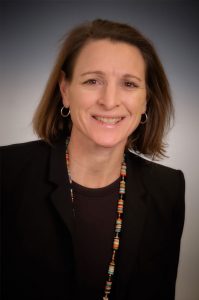
Kristen Konkol
Associate Teaching Professor, Exercise Science
Kristin Konkol is an Associate Teaching Professor in the Department of Exercise Science. She teaches courses such as structural kinesiology for performance enhancement and injury prevention, structural kinesiology, scientific principles of conditioning, and concepts of fitness. She also runs the internship and experience credits for the department.
She joined Falk College as an Assistant Teaching Professor in the Department of Exercise Science in Fall 2020. Prior to joining Falk College in 2020, the Department of Exercise Science was positioned within Syracuse University’s School of Education, where Konkol has served as Assistant Professor since 2018, and formerly as part-time faculty. Previously, Konkol was an Assistant Professor in the Department of Human Performance, Exercise Science/ Physiology at the Minnesota State University, Mankato, where she taught courses such as individualized exercise, aerobic conditioning, and concepts of fitness, among others. She also held an adjunct faculty position there, as well as coaching positions at the Gustavus Adolphus College.
At the University of Kwa-Zulu Natal in South Africa, Konkol held several titles, including lecturer, lab instructor, manager in the Human Performance Laboratory, and performance specialist for professional athletes. Konkol’s research interests include sport specific training; speed, agility, and quickness training; athletic performance testing; strength and conditioning; exercise immunology; and global perspectives in human performance. Konkol’s work is published in the Cardiovascular Journal of Africa, Sport Sciences for Health, Children, Sports and Exercise Medicine Open Journal, and International Journal of Exercise Science.
Konkol currently serves at Syracuse University as the I-Move Program Coordinator and Dance Minor Coordinator. From 2004 to 2006, she served as a United States Peace Corps Volunteer in Guyana and South America. Konlol is a Certified Performance Enhancement Specialist through the National Academy of Sports Medicine. Konkol earned her Ph.D. in Sports Science from the University of KwaZulu-Natal in South Africa in 2013.
She earned an M.A. in Kinesiology with an Exercise Physiology emphasis and a graduate minor in Complementary and Alternative Therapy and Healing Practices. She earned her B.S. in Exercise Science with a Cardiac Rehabilitation emphasis from the University of Toledo, where she was a Division I collegiate basketball athlete.

Ashleigh Jones
Assistant Teaching Professor, Human Development and Family Science
Ashleigh Jones joins the Department of Human Development and Family Science as an assistant teaching professor. She teaches classes in human sexuality and intimate relationships.
Jones has over 10 years of teaching experience and has taught courses across various subjects spanning multiple disciplines at both the undergraduate and graduate levels. As an educator, Ashleigh takes immense pride in creating an informative and engaging classroom environment in which students are encouraged to control their own learning experience. Dr. Jones leverages her extensive teaching experience with novel teaching pedagogies to create an immersive and collaborative teaching environment to help future scholars and practitioners apply theory to practice. Recent courses she has taught include families in crisis, cross-cultural research, adolescents and their families, mental health, and human sexuality.
Prior to joining Syracuse University, Jones was an instructor at Texas Tech University in 2020 in the Departments of Human Development and Family Sciences and Community, Family, and Addiction Sciences. Prior to Texas Tech, while completing her graduate degrees, she served as an instructor at the University of Illinois Urbana-Champaign, teaching courses for the Department of Community Health from 2010-2017.
In addition, Jones worked as an academic coach with Disabilities Resource Education Services at the University of Illinois from 2012-2017. In this role, she worked directly with students and conducted needs assessments; offered career counseling; and created, implemented, and facilitated several skill-based workshops and trainings for students, staff, and faculty across the university campus.
Jones earned a Ph.D. in 2019, an M.S. in 2011, and a B.S. (with honors) in 2008, all from the University of Illinois Urbana-Champaign.
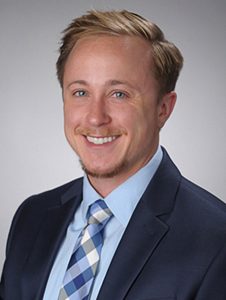
Tristan Martin
Assistant Teaching Professor, Marriage and Family Therapy
Tristan Martin joins the Department of Marriage and Family Therapy as an assistant teaching professor. He teaches classes in family therapy, including sexual issues for the helping professional.
Prior to Fall 2022, Martin was an adjunct instructor both in Marriage and Family Therapy and Human Development and Family Science at Syracuse University.
Martin’s research focuses on transgender sexuality with the intersections of relational and erotic diversity. He has presented at multiple national conferences and contributed to publications in the field of family therapy and transgender issues, including the “Handbook of LGBTQ-Affirmative Couple and Family Therapy” and “Sexual and Relationship Therapy.”
Martin was a recipient of the Summer Dissertation Fellowship at Syracuse University in 2019 for his dissertation “Transgender Congruence and Sexual Satisfaction in Trans Masculine Adults: The Role of Affirmative Sexual Partners.”
Martin is a Licensed Marriage and Family Therapist (LMFT) and AASECT-certified Sex Therapist. His clinical work focuses on providing support for the LGBTQ community, with specialization in supporting gender transition for youth and adults.
Martin earned a Ph.D. in Marriage and Family Therapy from Syracuse University in 2020, a Certificate of Advanced Study in Sex Therapy from the University of Wisconsin-Stout in 2020, a master’s degree in family therapy from Mercer University in 2016, and a B.A. (with honors) in 2014 from Huntingdon College.
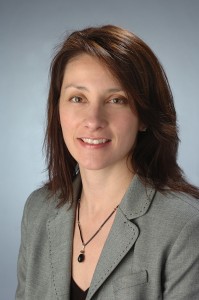
Tracey Reichert Schimpff
Associate Teaching Professor, Marriage and Family Therapy
Tracey Reichert Schimpff is an associate teaching professor in the Department of Marriage and Family Therapy. She teaches supervision in marriage and family therapy for doctoral students and practicum courses for the master’s program.
Reichert Schimpff has been the director of clinical services for Marriage and Family Therapy since 2013 and served as the clinic supervisor from 2008 to 2013. Prior to working at Syracuse University, Reichert Schimpff was the director of family services at The Salvation Army in Syracuse. She held several clinical and administrative roles in the non-profit organization from 1998 to 2008.
Reichert Schimpff’s focus has been on child welfare and the treatment of trauma. Her research explored therapists’ experiences of trauma and the role of compassion fatigue and compassion satisfaction. She is also interested in developing community collaborations to increase access to mental health care.
She has collaborated on scholarly articles and grants in the areas of community violence, trauma, and maternal mental health.
Reichert Schimpff has served as chair of the Supervisor Committee, Clinic Committee, Handbook Committee and Clinical Readiness Committee in the Department of Marriage and Family Therapy. She also provides supervision mentorship to supervisor candidates in the Central New York area.
Reichert Schimpff earned a Ph.D. from Syracuse University in 2019 and an M.A. from SU in 1996. She received a B.S. from LeMoyne College in 1993. Reichert Schimpff is a licensed Marriage and Family Therapist, Clinical Fellow of AAMFT, and an Approved Supervisor.
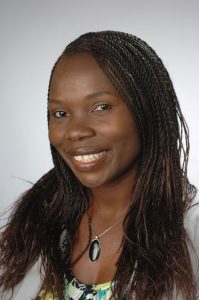
Naomi Shanguhyia
Associate Teaching Professor, Nutrition and Food Studies
Naomi Shanguhyia joins Nutrition and Food Studies as an associate teaching professor. She teaches classes in contemporary food issues, global food politics, and oversees the undergraduate and graduate practicums.
Prior to joining Falk College, Shanguhyia was the associate director of the Renée Crown University Honors Program, where from 2019 to 2022 she oversaw the program’s curriculum and day-to-day operations and taught a course on food security in Africa. She was also a part-time instructor in the Geography and the Environment Department in the Maxwell School of Citizenship and Public Affairs, where she taught a class on geographies of hunger, and a faculty affiliate in the international relations program. From 2012 to 2014, Shanguhyia was a lecturer in the Department of Geography and Environmental Sustainability at SUNY Oneonta, where she taught courses in introductory geography, food, society and environment, and gender geography. In 2014, Shanguhyia joined the College of Arts and Sciences at Syracuse University as a post-doctoral faculty fellow and taught writing-intensive seminars focusing on the themes of food, society, gender, and environment.
Shanguhyia’s research focuses on the global and local processes that intersect to shape food, nutrition, and health outcomes among communities in Africa south of the Sahara. Her dissertation research, which was funded by an NSF DDRI grant, examined the impact of environmental and economic change on food and livelihood security among rural communities in western Kenya. Her previous work, which is published in Human Geography: A Radical Journal, analyzed the politics of chronic hunger in arid and semi-arid areas in northern Kenya. She has presented her work at the annual conferences of the American Association of Geographers (AAG) and the Association for the Study of Food & Society (ASFS), the Cornell University International Studies Summer Institute Workshop, and other forums.
Shanguhyia holds a Ph.D. and M.A. in geography from West Virginia University and a B.Ed. and M.Ed. from Kenyatta University, Kenya.
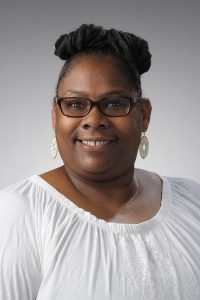
Nadaya Brantley
Assistant Teaching Professor, Social Work
Nadaya Brantley joined the School of Social Work as an assistant teaching professor in Spring 2022. She teaches courses in introductory social work and social welfare policy and serves as the baccalaureate of social work program director.
She joined Syracuse University as a member of the field office in January 2011 as an internship placement coordinator and previously served as the assistant director of BSSW field education in Falk College, School of Social Work Field Education Office. She is a New York State Licensed Master Social Worker. Her practice areas include work with adolescents, developmental disabilities, mental health, and incarcerated populations.
As a systems thinker, she believes that, in the words of Bell Hooks, “there must exist a paradigm, a practical model for social change that includes an understanding of ways to transform consciousness that are linked to efforts to transform structures.” Brantley’s research interests include exploring intersectional identities and educational equity in higher education through a critical race theory lens.
Brantley serves on several department committees and as an advisor for several student organizations, including SU-NAACP, SU-Special Olympics of New York, Social Worker’s United, and the Juvenile Urban Mentoring Program (J.U.M.P. Nation).
She received a bachelor’s degree in social work and a master’s of social work (M.S.W.) degree from Syracuse University. She is currently a doctoral student in the Cultural Foundations of Education in the Syracuse University School of Education.
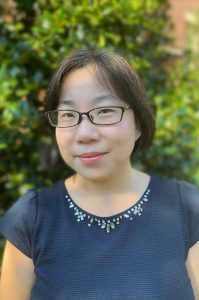
Ting Guan
Assistant Professor, Social Work
Ting Guan joins the School of Social Work as an assistant professor. She will teach courses on foundations of social work research.
Prior to joining Syracuse University, Guan was a Ph.D. candidate at the University of North Carolina at Chapel Hill School of Social Work, where she also served as a research assistant, working with faculty in the School of Social Work, School of Nursing, and Lineberger Comprehensive Cancer Center on federally funded work related to integrated health care and cancer care. Guan has over eight years of clinical experience in hospital settings as a medical social worker in China.
Guan’s research focuses on developing and evaluating family-based psychosocial interventions to improve cancer patient and caregiver quality of life through collaborative and interdisciplinary social work practice in healthcare settings. She has published over 20 peer-reviewed articles in academic journals, including Psycho-Oncology, Supportive Care in Cancer, Journal of Psychosocial Oncology, Social Work in Health Care, and Journal of the Society for Social Work and Research.
Guan’s dissertation research was supported by a Royster Dissertation Completion Fellowship at the University of North Carolina at Chapel Hill in 2021.
Her work has been recognized and funded by the Association of Oncology Social Work, Society for Social Work and Research, and Association of American Medical Colleges. In 2015, Guan was awarded China’s Most Dedicated Social Worker Award, a prestigious national award for social work practitioners.
Guan earned a Ph.D. in social work in 2022 from the University of North Carolina at Chapel Hill School of Social Work, a master’s degree in social welfare in 2009 from Peking University, and a bachelor’s degree in social work in 2006 from China Youth University for Political Studies.
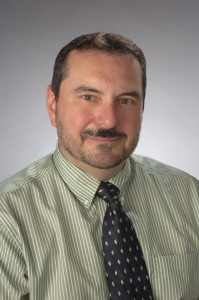
Joseph Smith
Associate Teaching Professor, School of Social Work
Joseph Smith joined the School of Social Work as an associate teaching professor in Spring 2022 and serves as the college online MSW program liaison. He teaches classes in applied research in social work, psychopathology, and alcohol and other drugs in social work practice.
Prior to his full-time faculty appointment at Syracuse University, Smith served as an adjunct faculty member in both the BSSW and MSW programs since 2010. He was heavily involved in online curriculum development and teaching in various content areas. Additionally, Smith comes to this position following 25 years of administrative and teaching experience as Department Chair of Chemical Dependency Counseling and Human Services at SUNY Tompkins Cortland Community College.
Smith has practiced as a licensed clinical social worker and Master CASAC in a wide range of social work settings, including adult psychiatric inpatient, substance abuse outpatient and residential, and children’s psychiatric outpatient programs. Smith has interests in trauma-informed and evidence-based strategies, psychodynamic interventions, and culturally responsive practice.
His research interests focus on the areas of mental health and student success, substance use on college campuses, and academic achievement and job placement with underrepresented and minority college students. Smith’s work has been supported by a Perkins Grant from Assertive Community Intervention and Guided Pathways aimed at providing intrusive and structured supports for undergraduate students experiencing academic difficulties; a New York State OASAS College Environmental Prevention Grant aimed at preventing/reducing underage alcohol and drug use on college campuses; and an ALANA Scholarship Grant from the Park Foundation aimed at increasing educational opportunities and job placement for underrepresented and minority students.
Smith has previously served as an MSW Research/Thesis Advisor at Smith College School for Social Work in Northampton, Massachusetts. He also consults and work with NYS OASAS as a statewide trainer in the areas of ethics, cultural competency, and clinical supervision.
Smith earned a Ph.D. in social work from Smith College School for Social Work in 2006, a master’s of social work (M.S.W.) degree from Syracuse University, and a B.S. in psychology from Utica College.
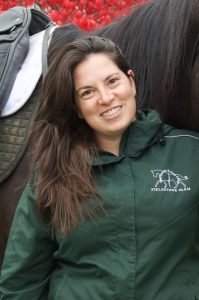
Aviva Vincent
Assistant Teaching Professor, School of Social Work
Aviva Vincent joins the School of Social Work as an assistant teaching professor. She teaches classes in the online master of social work (M.S.W.) degree program.
Prior to joining Syracuse University, Vincent was the program director at Fieldstone Farm Therapeutic Riding Center, a premiere accredited PATH Intl. facility in Ohio. She was also an adjunct at the University of Connecticut and Case Western Reserve University. She is an instructor of animal-assisted interventions at the University of Tennessee, Knoxville, in its Veterinary Social Work Certificate Program and has served as the program’s community engagement coordinator. Vincent is co-owner of the only Veterinary Social Work private practice in Northeast Ohio, Healing Paws LLC.
Vincent’s research focuses on the bi-directional physiological impact of human-animal interaction. She has published over 15 peer-reviewed publications, of which she is the first author of nine. She is also a contributor to The Comprehensive Guide to Interdisciplinary Veterinary Social Work; Integrating Horses into Healing; The Handbook on Human Animal Interactions, Interventions, and Anthrozoology; and Career Paths in Human-Animal Interaction for Social and Behavioral Scientists.
Vincent recently concluded a study as a co-investigator, Reining in Anxiety, which tested a 10-week manualized CBT-based curricula in adaptive riding sessions. Vincent has also completed research exploring the impact of equine assisted services toward the promotion of mindfulness for veterans. Currently, she is leading a local pilot of the Man O’War Project, a curriculum developed in partnership with Columbia University and PATH Intl. Subsequent research has been supported by the Institute for Interdisciplinary Salivary Bioscience Research (Spit Camp, 2017). Later in 2017, Vincent was a recipient of an inaugural fellowship to the Animals and Society Institute for pre-doctoral candidates.
Vincent was awarded a Doctoral Program Research Fellowship from 2015-19 from the Jack, Joseph and Morton Mandel School of Applied Social Sciences at Case Western Reserve University. During her tenure, she received the Phi Beta Kappa Research Award (2018), Dr. Dorothy Pijan Student Leadership Award (2018), and Verhosek Fund Award (2016). Prior to her doctoral career, Vincent received the Next Generation Leadership Award (30 under 30) in 2014 from the National Afterschool Association. Vincent is president of the International Association of Veterinary Social Work, board of trustee member for PATH Intl., and an advisory member for the Center for Human Animal Interaction Research and Education at The Ohio State University.
Vincent earned a Ph.D. in 2019 from Case Western Reserve University in social welfare with a concentration in veterinary social work, including a Veterinary Social Work Certificate from the University of Tennessee, Knoxville, in 2017. Vincent is a Licensed Social Worker in the state of Ohio and has completed specialized training as a Certified Therapeutic Riding instructor (2016), Equine Specialist in Mental Health and Learning (2019), and Equine Services for Heroes (2018). She has also completed Green Dot Bystander Training (2018), Sustained Dialogue (2018), LGBTQ+ Safe Zone Training (2015), and the Institute For Social Change and Harwood Institute (2012). She earned a master of social work degree in community organizing in 2011, and a B.A. from University of Massachusetts at Amherst in social thought and political economy in 2007. In her undergraduate studies she also completed a semester abroad at the University of Limerick.
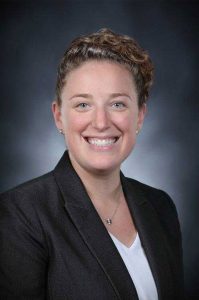
Lindsey Darvin
Assistant Professor, Sport Management
Lindsey Darvin joins the Department of Sport Management as an assistant professor. She will teach classes in research methods and race, gender, and society in sport.
Prior to joining Syracuse University, Darvin was an assistant professor from 2018-22 at the State University of New York College at Cortland, where she taught sport ethics, athlete development, and administration of sport.
Darvin’s research centers around the themes of sport industry and esport industry gender equity, with a particular focus on seeking to combat the underrepresentation of women leaders and women and girl participants at the intercollegiate and professional levels of sport and esport competition. She has published in refereed journals across a variety of academic segments in the areas of management, sociology, vocational behavior, organizational behavior, communications, and sustainability science. Her research has been featured across a variety of media platforms, including The New York Times, The Wall Street Journal, Forbes, New York Daily News, Inside Higher Education, and SB Nation. Darvin was co-editor of a special issue in the Journal of Athlete Development and Experience (JADE), released March 2022, that focused on NCAA Division III athlete wellbeing and experience. Recently, Darvin served as an author of the Women’s Sport Foundation 2022 collaborative report, “50 Years of Title IX: We’re Not Done Yet.”
Subsequent research has been supported by SUNY Faculty Research Program awards in 2019, 2020, and 2021.
Professor Darvin serves on the editorial board of several peer-referred journals, including the Sport Management Education Journal (SMEJ), the Journal of Athlete Development and Experience (JADE), and the Journal of Electronic Gaming and Esports (JEGE). Darvin is a member of the Dell Technologies Research Collective and the North American Society of Sport Management, and she serves on the steering committee for the PNC Bank Pittsburgh Knights women in esport group. In Spring 2019, Darvin created and advised the first women in sport management group on the campus of SUNY Cortland.
Darvin earned a Ph.D. in sport management in 2018 from the University of Florida, an M.S. in sport management in 2014 from the University of Massachusetts Amherst, and a B.A. in political science in 2012 from Bryn Mawr College.
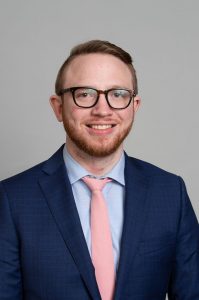
Jason Maddox
Assistant Professor, Sport Analytics
Jason Maddox joined the Department of Sport Management as an assistant professor in Spring 2022. He teaches sport data analysis and R for sport analytics.
Prior to joining Syracuse University, Maddox was a student at Baylor University earning his B.S., M.S., and Ph.D., all in statistical science. While a doctoral candidate, he taught introduction to statistics courses and focused research on sport analytics. Maddox also served in the front office of the San Diego Padres as a research and development intern during the summer of 2019.
Maddox’s research focus is on sports data analysis in R, using methods such as regression, machine learning, and Bayesian analysis. His dissertation was focused on creating in-game win probability models for basketball and football.
Maddox earned a Ph.D. in 2022, an M.S. in 2018, and a B.S. in 2016, all in statistical science from Baylor University.
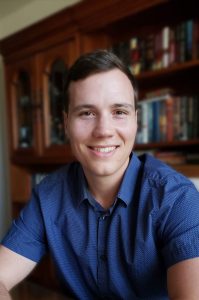
Adrian Simion
Instructor, Sport Analytics
Adrian Simion joins the Department of Sport Management as an instructor. He teaches classes on python programming for web scraping and statistical analysis.
Prior to joining Syracuse University, Simion was a graduate student at Wayne State University from 2017 to 2022, pursuing his Ph.D. in economics with a focus in econometrics. He taught principles of microeconomics and macroeconomics, intermediate macroeconomics, and intermediate econometrics during his time there. He was also a research assistant working on sport management research projects.
Simion’s research is in applied econometrics and sport management. His thesis is on external imbalances and their ability in predicting future exchange rate movements. His sport-related research has been on the impact of college football on the surrounding lodging industry, and the NCAA transfer portal and its impact on the welfare of transferring athletes.
Simion was awarded the Nancy S. Barrett Endowed Prize in Applied Economics in 2021 for his thesis work.
Simion is a Ph.D. candidate in economics at Wayne State University. He earned a M.A. in economics from Wayne State University in 2022 and earned a B.A. in mathematics from Michigan State University in 2016.
Wastewater the Key to Long-Term Public Health
The idea is simple: measure traces of the virus in community wastewater. When the levels increase, it’s an early sign that the risk of transmission in the area is growing. The sewage tells the story, giving public health experts a three- to five-day warning of the need to protect communities through steps like social distancing advisories.
“Early on in the pandemic, a wastewater surveillance system would’ve been fantastic for many of the counties in New York state, but we didn’t have it built,” says epidemiologist David Larsen, who spearheaded the research project with an interdisciplinary team of experts in coordination with the New York State Department of Health.
Today, a statewide surveillance system is well on its way to being complete. “My goal was to build the infrastructure for New York state,” Larsen explains. “That includes the data. It includes relationships with the wastewater treatment plants. It includes the knowledge to make this an actionable, useful tool for local health departments and the public.” Larsen is also an integral member of the University’s Public Health Team, which leads the University’s pandemic response.
Now Larsen and colleagues in the Falk College are harnessing the power of this infrastructure to protect public health through the rest of this pandemic and far beyond.
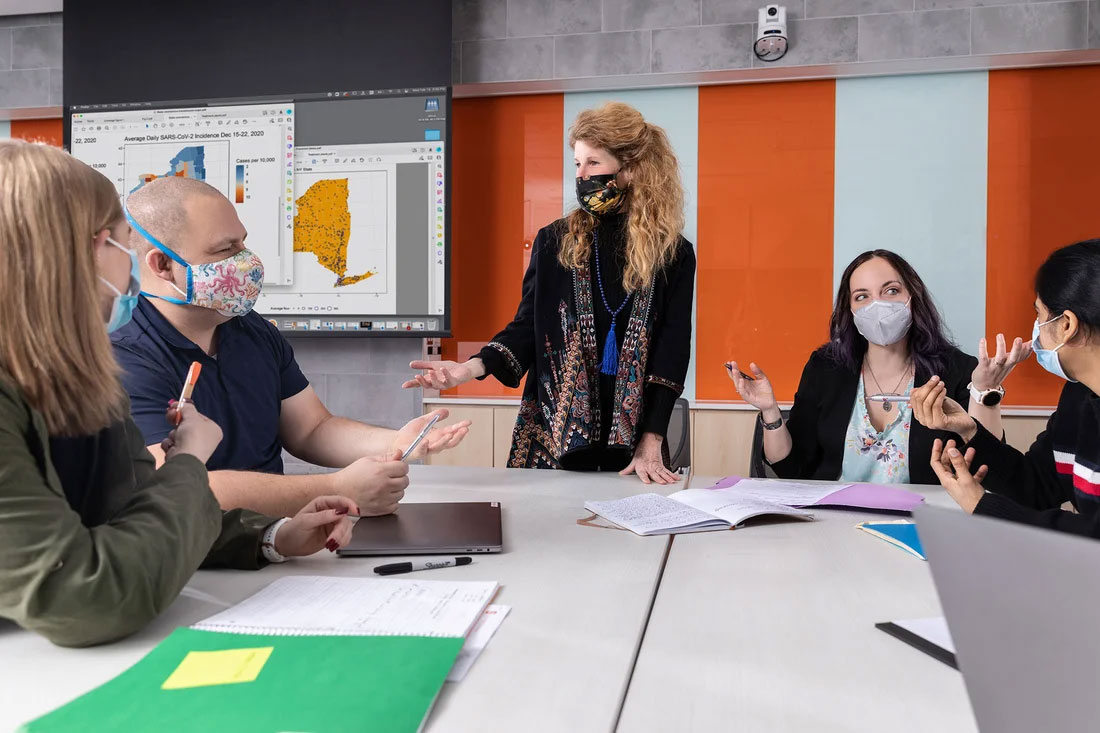
Seeing the Whole Iceberg
Wastewater surveillance offers not only an early warning of potential virus transmission but a more complete picture. “One of the challenges with individual testing is that you have to get all those individuals to get tested,” explains Professor Brittany Kmush, a vaccine expert at Falk and a member of the Public Health Team. “Wastewater surveillance helps capture data from people who don’t go to the doctor, since most people who get COVID don’t get very, very sick, and we can miss them in a lot of our traditional surveillance methods.”
The result is a more comprehensive, objective measure of the presence of disease at the population level within a particular community.
“In epidemiology we talk about the tip of the iceberg when we see cases or hospitalizations or death that represents what’s visible to the health system,” Larsen says. “Then there’s this huge underlying mass of transmission that’s invisible, and wastewater surveillance captures that entire iceberg.”
The Right Message at the Right Time and Place
Geographic precision is another benefit of wastewater monitoring. Early statewide COVID-19 lockdowns required people to mask or isolate even in areas where transmission risk was still relatively low.
Here, Kmush sees an opportunity to refine public health messaging for maximum impact. “If we could tailor some of those messages on a local level—this county needs to lock down for a couple of weeks, and once the wastewater is better, we can open up a little bit more—I think that would be more effective at changing human behavior than broad sweeping national or statewide lockdowns.”
With wastewater as a guide, public health experts could limit public health actions to areas where the emerging threat is significant, issuing less constrictive “stay local” messages in communities where the risk of transmission is low.
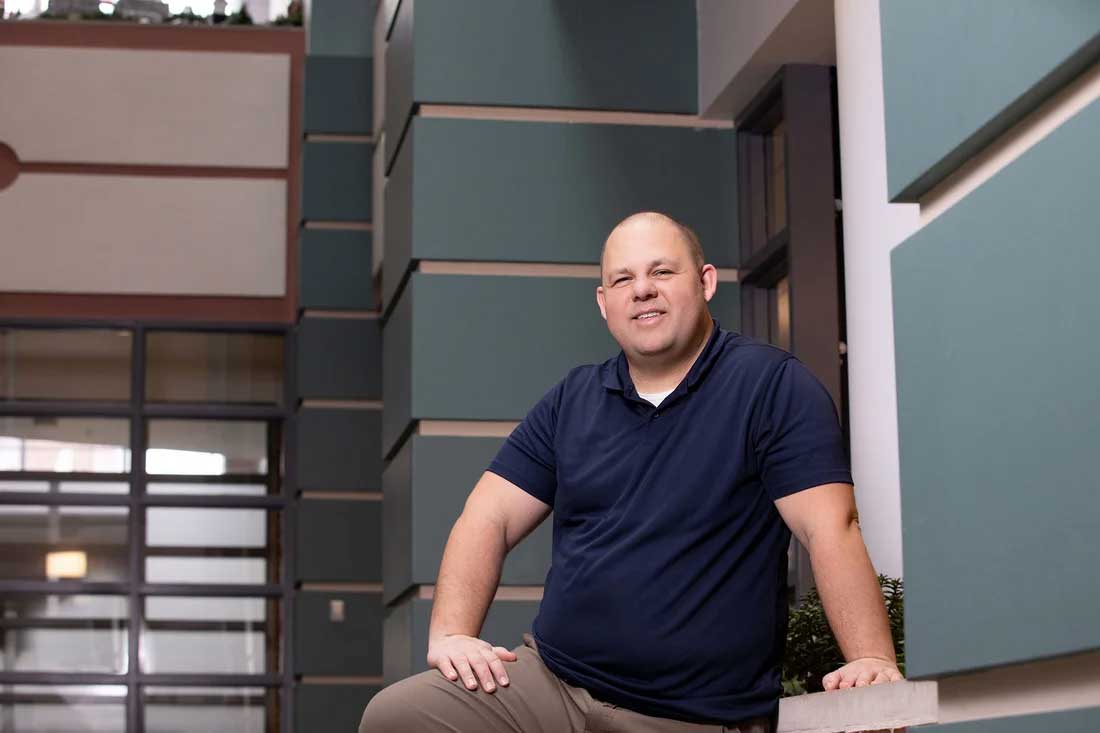
From Disease X to Drug Use
Wastewater analysis provides valuable information that experts could use to support public health long after the COVID-19 crisis has receded from the spotlight. “One of the reasons for building this wastewater surveillance infrastructure is to improve our health security for the next emerging pathogen,” Larsen says. “The general term for it is Disease X.”
The approach could also be expanded to detect public health threats other than pathogens. Kmush cites antibiotic resistance as an example, based on the presence of antimicrobials in sewage. “Knowing when to prescribe which types of antibiotics for the community as well as in a specific hospital could be really useful,” she explains.
Getting a clearer picture of community-level substance use is another innovative possibility. Professor Dessa Bergen-Cico, an addiction specialist at Falk, says monitoring the presence of drugs in wastewater could supplement the traditional survey-based approach to tracking emerging trends in substance use. “For example,” she explains, “it could give you an idea of the necessary staffing levels for first responders and what they need to be aware of or on the lookout for.”
Bergen-Cico is excited about where this research collaboration could lead and what it means for students. “Beyond the public health research component, I think this has been a fantastic opportunity for the undergraduate students, graduate students and faculty all working on wastewater analysis,” she says. “It’s a really novel emerging skill and specialization.”
Getting a clearer picture of community-level substance use is another innovative possibility. Professor Dessa Bergen-Cico, an addiction specialist at Falk, says monitoring the presence of drugs in wastewater could supplement the traditional survey-based approach to tracking emerging trends in substance use. “For example,” she explains, “it could give you an idea of the necessary staffing levels for first responders and what they need to be aware of or on the lookout for.”
Bergen-Cico is excited about where this research collaboration could lead and what it means for students. “Beyond the public health research component, I think this has been a fantastic opportunity for the undergraduate students, graduate students and faculty all working on wastewater analysis,” she says. “It’s a really novel emerging skill and specialization.”
An SU Story by Elizabeth Myers originally published on July 26, 2022.
Student Spotlight: Nicole Petersen
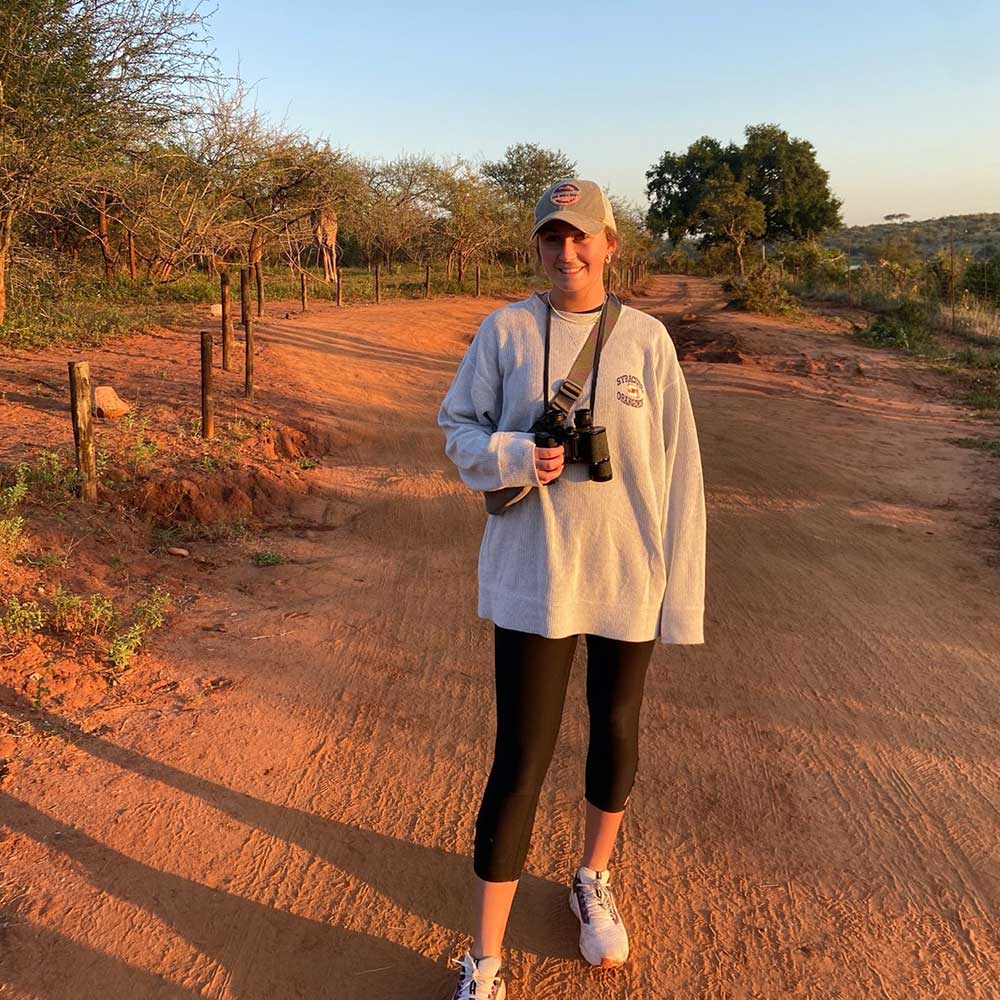
Why Syracuse University?
I’ve always wanted to pursue a career in medicine and when I found out about the public health major at Syracuse, I decided it was the perfect opportunity to see healthcare from a different perspective.
Favorite class (so far): Human Health and Disease (Professor Lisa Olson-Gugerty).
The Orange Experience: In my time at Syracuse, I’ve involved myself in various groups with some of my best memories involving Phi Sigma Sigma and Syracuse University Ambulance.
The Future: When I graduate from Syracuse, I hope to attend further schooling to get my master’s in public health and become a physician assistant.

Studying in South Africa
As part of Syracuse Abroad, Petersen spent the 2022 Spring Semester in South Africa with the SIT (School for International Training) South Africa program. Here are Petersen’s thoughts on her abroad experience:
“The majority of my time was spent on the eastern coast in the city of Durban, but I also had the opportunity to spend time in Johannesburg, Nzinga, Cape Town, and the Kruger National Park, to name a few. This program, “SIT South Africa: Community Health and Social Policy,” focused on health at the community level in South Africa and it’s the reason that I now want to pursue a master’s in public health.

An Unbelievable Experience
“With the high prevalence of HIV and tuberculosis that spans nationwide, I got to see firsthand the public health initiatives that are being implemented and working. I also had the opportunity to complete my public health internship at a state-run hospital, where I worked with low-income families and saw the work that is done in the public hospital system, which was an unbelievable experience.
“I will always be able to hold onto the memories I made in South Africa, such as living with my amazing host family in Durban and seeing lions, leopards, and elephants up close in the wild.”
Public health students may elect to complete the internship requirement while studying abroad. For more information, visit Syracuse Abroad: SIT Kenya – Global Health and Human Rights, SIT South Africa – Community Health and Social Policy, and SIT India – Public Health, Gender, and Community Action.
Congratulations Class of 2022

325 undergraduates;
131 masters candidates;
24 students earning certificates of advanced study, and;
4 Ph.D. students.
Through the month of May, departments across Falk College honored student achievements and celebrated the graduating Class of 2022, which are detailed on individual department websites.
Falk College Convocation was held Saturday, May 14 at Manley Field House. Falk College Convocation, other college convocations, and the May 15 Syracuse University Commencement ceremony, were recorded and are available to view on the Syracuse University commencement website and is also included below.
Falk College Convocation | Saturday, May 14 | 4:30 p.m. ET
Falk College Convocation Photos
Class of 2022 Honored with Public Health Awards
The Department of Public Health in Falk College is pleased to recognize the outstanding work of its undergraduate and graduate students for excellence. Students are nominated for these awards by the Public Health faculty.
Academic Excellence in Public Health
Quinn Tobias, BS Public Health
Quinn is recognized for her outstanding academic record, earning a cumulative GPA of 3.978 and Dean’s List status during each year of undergraduate study. In addition to the public health major, Quinn completed a minor in business. Quinn will be continuing her studies at the University of Pennsylvania in their Accelerated BSN/MSN program in the neonatal nurse practitioner specialty.
Excellence in Public Health Practice
Cathryn Willing, BS Public Health and Policy Studies
Cathryn (Cate) is recognized for her outstanding public health practice across all four years of her undergraduate study. Cate served as the managing editor for the Healthy You publication and completed summer internships with the Food Industry Association and the Well Being Trust. In addition, she completed her senior internship at the Environmental Protection Agency while participating in the Maxwell-in-Washington undergraduate program. Cate has been accepted to New York University’s Steinhardt Master in Food Studies but may defer her acceptance to work first in health, data analytics, and communications.
Madison Humphry, BS Public Health and Environment, Sustainability, and Policy
Madison is recognized for her public health surveillance work with the COVID-19 Saliva Testing Lab. Madison has been a resolute member of the laboratory team since September 2000 and is an integral member of the lab collaborating with others to problem solve and maintain efficiency in the lab. Following graduation, Madison will pursue an MPH degree with a focus on Health Policy and Management.
Public Health Leadership
Haley Tomasso, BS Public Health
Haley is recognized for community service work and projects outside of her academic requirements. Haley has been an active member of the Syracuse University Camp Kesem chapter, an organization that supports the needs of children impacted by a parent’s cancer diagnosis. Haley initially served as a camp counselor, then as the Make the Magic Coordinator raising $70,000 to support the camp’s work, and currently as Director where she oversees the activities of the Executive Board and coordinates the weeklong summer camp. Haley currently serves as Vice President of Syracuse University Ambulance (SUA). Following graduation, Haley plans to take a gap year to work in clinical services while applying to physician assistant programs.
Research Award for Public Health
Megan Willkens, BS Public Health and Policy Studies
Megan, a participant in the Renee Crown University Honor’s Program, is recognized for her participation in a number of research projects. In 2020, Megan was awarded an Honor’s Program Crown award to support her research on the impact of insecticides on the cognitive development of pre-school aged children living in sub-Saharan Africa. This research project was named as the winner of the 2021 Falk Student Research Celebration Undergraduate Poster Award. Megan will be joining Cornell University Weill School of Medicine as a research fellow.
Social Justice in Public Health
Renee Verdi, BS Public Health and Policy Studies
Renee is recognized for her social justice related work in research, academics, and public health practice. As a participant in the Maxwell-in-Washington program, Renee interned with the Truth Initiative where she worked on tobacco and e-cigarette policies, particularly to reduce the targeting of populations at elevated risk of using these products. Renee has participated in two social justice related research projects, one in which she examined immigrant and refugee satisfaction with COVID-19 relief programs and another in which she studied newspaper reporting on vaccine hesitancy among people of color. After graduation, Renee plans to work in the public health policy sector.
Excellence in the Public Health Graduate Program
Nicole Carter, MPH
Nicole is recognized for her academic excellence and internship work with the Joslin Diabetes Center at Upstate Medical University where she is working with their Transition Program. This program aims to provide a smooth move from pediatric to adult diabetes care. Nicole will be using interview, chart review, and survey data to prepare an analysis of current Center and program practices. Following graduation, Nicole will be joining the Cortland Area Communities that Care (CACTC) organization as an epidemiologist.
Falk Scholars
Falk College awards the Falk Scholar designation to students recognized for their academic excellence, exceptional campus and community engagement, independent research and creative work, evidence of intellectual growth and/or innovation in their disciplinary field, and personal integrity. Cathryn (Cate) Willing and Megan Willkens were named 2022 Falk Scholars.
Class Marshalls
Class Marshalls lead the undergraduate and graduate degree candidates into the Falk College Convocation event. The selection of class marshals is made by faculty and peers and is based on academic strength, academic honors, student organization involvement, campus and community service and loyalty to Syracuse University; including activities to support the public health programs.
Graduate Class Marshall: Gursimar Singh, MPH
Gursimar was chosen for her strong research record and service to Syracuse University. She has completed research projects with Professor Appiah and Professor Walia. In addition, she is Co-Director of Orange Seeds and has served as a Residence Hall Advisor. After graduation, Gursimar plans to pursue a career as a community health educator, promoting a more inclusive healthcare system.
Undergraduate Class Marshall: Lily Esteghamati, BS Public Health and minor in Business
Lily was chosen for her service to support our undergraduate program. She has served as a Peer Advisor, was selected as a teaching assistant for HSH 101 Freshman Gateway Seminar, and has worked with the Falk College Admissions Office to recruit high school seniors to the major. Lily is also the Special Events Chair of the SU OttoTHON student organization. Lily is seeking public health related employment and plans to pursue a joint MPH/MBA degree in the future to further her aim of making a difference in the health care system.
Finding community in public health
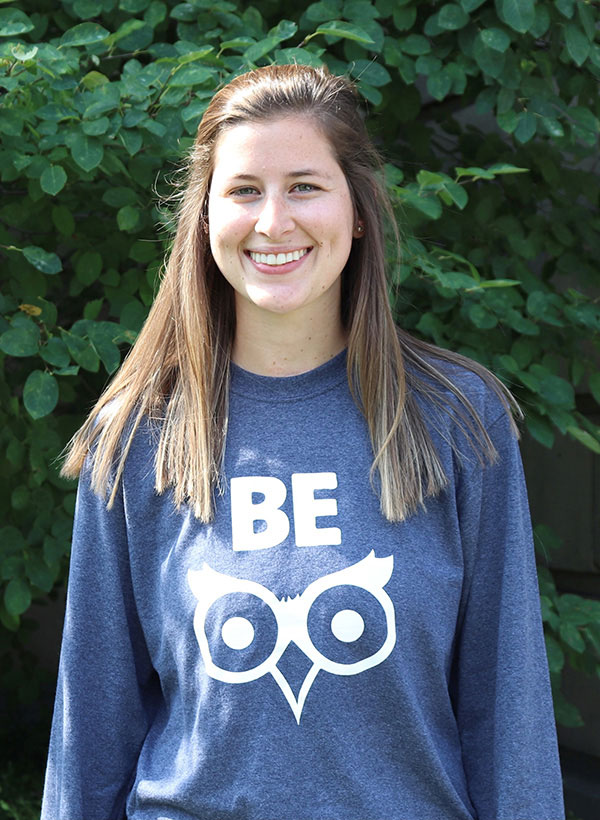
As a Navy Corpsman, Emily trained in San Antonio, Texas, before assignments at Walter Reed in Bethesda, Maryland, and the Naval Medical Center in San Diego, California, during her six-year Navy career. Her husband Nicholas came with her to every post and completed his undergraduate education fully online. When he was admitted to Syracuse Law School, Emily had one year left in her military commitment. Nicholas deferred entry for a year while Emily finished her service and considered options in higher education. She had started her nursing degree and was planning to become a public health nurse but didn’t have a great passion for the nursing part so much as the public health part. That’s when she and Nicholas went on their trip to Bali.
“We saw a man with a Syracuse shirt on, which is unusual to see in that part of the world,” she says. “When we talked to him, it turns out he was on the board of directors for the IVMF [D’Aniello Institute for Veterans and Military Families]. He said I have to check out Syracuse. I was pretty dead-set on going to nursing school to become a public health nurse, but I looked into Syracuse’s public health program because of him. I’m glad I made the decision to switch.”
Emily and Nicholas are both natives of Watertown, New York, and Emily says she never really considered attending Syracuse as an option. Emily’s older sister is a nurse who also started her career as a Navy corpsman. Emily became interested in joining the Navy at a young age after attending her sister’s boot camp graduation.
“I was so inspired. That was all I wanted to do,” she says. “I never even considered college. I thought I would be a Navy corpsman and become a nurse, but it’s been nice to do my own thing.”
Emily got the Navy corpsman part done, heading out for boot camp only 10 days after high school graduation. Her job was to support nurses and strongly aligned with health education. She realized public health was a better fit for her and took the opportunity to reconsider her path when she discovered new options at Syracuse.
“My advisor Maureen Thompson is incredible. She’s always been really communicative and such a great contact,” Emily says. “She sat down with me and found how I could utilize credits from my military experience, and we created a whole schedule from when I started through graduation.”
Emily graduates this May from the Falk College with a degree in public health with a concentration in health education. She has one year left in her 4+1 program and plans to finish her master’s degree next year. She and Nicholas have embraced life on campus as military-connected students. One interesting aspect of their post-service lives is they have taken up beekeeping. Emily says she appreciates how inclusive Syracuse has been for military spouses like Nicholas, as well as for older, non-traditional students, because she realizes spouses give up a lot to follow their service members. Importantly, Emily also has found meaningful connections through the veteran and public health communities on campus.
“I’m all about community, which is interesting to see, because when I got out of the military, I really felt like the transition is harder than people let you know,” she says. “After six years, every day you’re surrounded by people who completely understand this niche aspect of the world. You get out, and it no longer becomes your whole identity. It becomes a piece of you, and you have to figure out the other part. I really miss that connection, so public health has given me the opportunity to create community. I feel like I’ve found my place again after being a little disheveled after leaving the military.”
Emily works as a Barnes Center at The Arch peer educator on campus and tries to keep the veteran community engaged and involved with as many resources as she can. For example, she helps to educate her peers on college-specific behaviors, nutrition, healthy relationships, sexual health, mental health and harm reduction strategies for substance use. She chaired the Take Back The Night planning committee, which empowers survivors to stand up against sexual relationship violence. She also runs the Orange Recovery program, for students in recovery from substance use disorder.
“I love outreach and creating a community on campus, whether it’s for recovery or sexual/relationship violence survivors. I know the veteran community is at higher risk for these issues, which is why I try to always send the resources over to the veteran’s community,” she says. “It’s really incredible to see how I’ve fallen into public health. I’ve always felt like I’m making an impact. It’s giving people tools and resources to use when they need it most, and I hope to keep making a difference.”
~ A Syracuse University News story by Stephanie Salanger originally published on Monday, May 2, 2022.
Page 9 of 26
